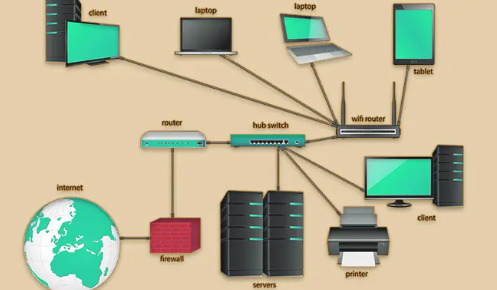Understanding how network servers operate is crucial in today’s digital world, as they form the backbone of communication and data management in various applications. From businesses relying on centralized systems to everyday users accessing online resources, network servers facilitate crucial functions that enhance productivity and connectivity. Exploring their operation can provide insights into both the technology itself and its broader implications for efficiency and data security.
What Is a Network Server?
A network server is a specialized computer that provides data, resources, or services to other computers, known as clients, over a network. Unlike a regular personal computer, servers are optimized to handle numerous simultaneous requests, making them essential for effective network operations. They can store files, host websites, or manage email, among other functionalities, thus playing a pivotal role in modern IT infrastructures.
How Network Servers Handle Requests
At the heart of a server’s operation is its ability to process requests through a client-server model. When a client makes a request—such as accessing a webpage or retrieving a file—the server interprets that request and fetches the required information. This process typically involves a series of steps: receiving the request, processing it, often querying databases, and then sending the response back to the client. The efficiency of this interaction depends on the server’s hardware capabilities, network bandwidth, and the server software architecture.
Types of Network Servers
There are various types of network servers, each tailored to specific functions. File servers are designed to store and manage files accessible to multiple users, while database servers facilitate storage and retrieval of structured data. Web servers deliver web pages and content to users’ browsers, and application servers provide a platform for running specific software applications over the network. Understanding these distinctions can help businesses choose the appropriate server type to meet their operational needs effectively.
In conclusion, gaining insight into how network servers operate is beneficial for anyone looking to understand the infrastructure that drives much of our online activities. By exploring server types and their mechanisms, individuals and organizations can make informed decisions about their network needs. To delve deeper, consider seeking out educational resources or tutorials to enhance your knowledge further.

